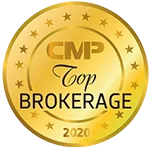Investing in real estate has long been considered a stable and profitable strategy in Canada. While residential real estate often takes center stage, commercial mortgage investment is steadily gaining attention among investors seeking consistent returns and diversification. But is commercial mortgage investment worth it? For many Canadians, the answer depends on their risk tolerance, investment goals, and understanding of the commercial lending landscape. This guide explores the fundamentals of commercial mortgages, their advantages, the types available, and whether this form of investment aligns with your long-term financial strategy.
What Is a Commercial Mortgage?
A commercial mortgage is a loan secured by a commercial property, such as an office building, retail space, warehouse, industrial site, or multi-unit residential complex. Businesses or investors typically use these loans to acquire, refinance, or develop income-producing properties. Unlike residential mortgages, commercial mortgages are considered riskier by lenders because they depend on the property’s ability to generate income. As a result, they tend to have shorter terms, stricter underwriting criteria, and often require a larger down payment. Commercial mortgages are not only used by property owners, but they also offer a unique opportunity for private investors and institutions to earn returns by financing these loans through various investment vehicles.
Advantages of Investing in Commercial Mortgages
1. Attractive and Predictable Returns
One of the most significant benefits of investing in commercial mortgages is the steady income stream they can provide. Lenders or investors earn interest payments over the life of the loan, and these returns are often higher than those available through traditional fixed-income investments like bonds or GICs. Depending on the risk level and loan-to-value (LTV) ratio, commercial mortgage investments in Canada can yield returns ranging from 6% to 12% annually, making them attractive for income-focused investors.
2. Asset-Backed Security
Tangible real estate assets secure commercial mortgage investments. If the borrower defaults, the lender has the legal right to foreclose on the property, recover the investment, or even gain ownership of the asset.
This collateral-backed nature of the investment provides a level of security and helps mitigate downside risk compared to unsecured loans or stock market investments.
3. Diversification for Your Portfolio
Adding commercial mortgage investments to a traditional investment portfolio can help spread risk. These investments are often less correlated with stock and bond markets, offering protection during periods of economic volatility or market downturns.
For investors seeking alternatives beyond equities and traditional fixed income, commercial mortgages serve as a strategic asset class that balances both income and risk.
4. Opportunity to Participate in Real Estate Without Direct Ownership
Investing in commercial mortgages allows individuals to gain exposure to the real estate market without directly owning property. This eliminates the headaches of property management, tenant issues, maintenance, and other landlord responsibilities, while still benefiting from the financial upside of commercial real estate lending.
Types of Commercial Mortgages Available
Commercial mortgage investments can take many forms. Below are some of the common types available to Canadian investors:
- First Mortgages: A first mortgage is the primary lien on a commercial property. In the event of borrower default, first mortgage holders are paid before any other creditors. These are typically lower risk and offer more stable, though often slightly lower, returns.
- Second Mortgages: A second mortgage is subordinate to the first mortgage, meaning it carries more risk but often offers higher interest rates as compensation. Investors in second mortgages must be willing to accept the increased risk for a chance at higher returns.
- Bridge Loans: Bridge financing is short-term in nature and is typically used to “bridge the gap” between property acquisition and securing long-term funding. These loans are generally offered at higher interest rates and can be profitable for investors seeking short-term gains.
- Construction Loans: These loans are provided to developers for new commercial construction or significant renovations. Construction loans usually carry more risk due to the potential for project delays or cost overruns, but can offer attractive returns when properly structured and secured.
- Private Commercial Mortgages: Private mortgages are issued by private lenders or investors rather than traditional banks. These are often used by borrowers who do not meet standard banking criteria, such as small businesses or real estate investors with complex financial profiles. They can be lucrative investments, but careful due diligence is essential.
Is It Worth Investing in Commercial Mortgages?
For many Canadian investors, the answer is yes, but with important caveats. Commercial mortgage investments can offer high yields, lower volatility, and asset-backed security, making them an attractive option for those looking to diversify their income-generating assets. However, they are not without risks. These include borrower default, declining property values, economic shifts, and regulatory changes. Therefore, due diligence is critical—from evaluating the borrower’s creditworthiness and loan-to-value ratio to understanding the terms and market conditions tied to the property. Investors should also consider their liquidity needs. Commercial mortgages are not typically liquid, and your capital may be tied up for months or years. This makes them more suitable for those with a long-term investment horizon and a strong appetite for fixed-income alternatives.
Final Thoughts
Investing in commercial mortgages can be a worthwhile addition to a diversified investment strategy, especially for Canadians seeking steady income and exposure to the real estate sector without direct ownership. While the potential for strong returns and capital protection exists, success largely depends on careful selection, risk assessment, and proper structuring of each investment opportunity. If you’re considering entering the world of commercial mortgage investing, take the time to research the market, understand the types of mortgages available, and ensure your investment objectives align with the risks involved. When done wisely, commercial mortgage investments can deliver dependable, long-term value.




